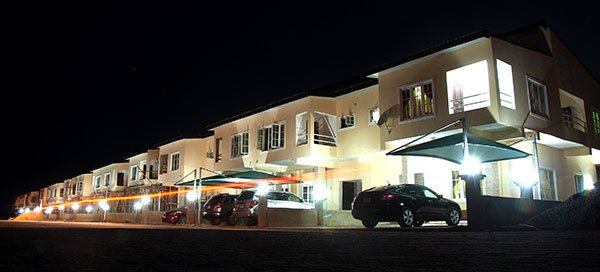A Federal High Court sitting in Lagos has ruled that Lekki Gardens Estate Limited has no legal authority to block or restrict access of homeowners and residents to their properties within Lekki Gardens Estate Phase 2.
In a judgment delivered by Justice D. E. Osiagor, the court restrained the developer, its agents, or security personnel from denying or obstructing entry into the estate. The decision follows a suit filed by residents and homeowners challenging access restrictions allegedly imposed by the company.
Background: Dispute Over Access Control
The case arose from the developer’s attempt to regulate entry and impose conditions on residents and their visitors. The claimants — registered homeowners within Lekki Gardens Estate Phase 2 — asked the court to declare that they were entitled to unrestricted access to their premises and internal roads.
After examining the evidence, the court held that the company had already conveyed ownership of the plots and houses through valid instruments of assignment. Consequently, Lekki Gardens Estate Limited no longer retained possessory or control rights over the sold properties.
Justice Osiagor concluded that any continued interference with residents’ rights of access violated their lawful title and constitutional freedoms of movement and ownership.
Orders of the Court
The court therefore:
-
Declared that the claimants were entitled to full, free, and peaceful use of their properties within the estate;
-
Issued a perpetual injunction restraining Lekki Gardens Estate Limited, its servants, or privies from obstructing access to the estate; and
-
Directed that any acts inconsistent with residents’ ownership rights must cease immediately.
Parallels With Earlier Case: Megawatts Nig Ltd v. Gbagada Phase 2 Residents’ Association
This latest judgment echoes the reasoning of an earlier 2020 Federal High Court ruling reviewed by Arbiterz in “Testing the Limits of Estate Associations’ Powers: Megawatts Nig Ltd v. Gbagada Phase 2 Residents’ Association” (published November 14, 2024 by Oluwatomi Otuyemi) .
In that case, Justice Nicholas Oweibo held that an estate’s residents’ association cannot compel automatic membership or mandatory levies from occupants without their consent. Relying on Sections 40 and 41 of the 1999 Constitution (as amended), the court found such compulsion unconstitutional because it violated the right to freedom of association.
Both judgments — though concerning different disputes — underscore a consistent judicial stance: the powers of estate developers or associations are not unlimited. Whether through access control (as in Lekki Gardens) or enforced membership (as in Gbagada Phase 2), private entities cannot lawfully abridge constitutional or proprietary rights once ownership or possession has been validly transferred.
Wider Implications for Gated Communities
Together, the two rulings outline the legal boundaries governing Nigeria’s proliferating gated estates:
-
Developers lose control rights once they sell units and execute title documents.
-
Residents’ associations cannot impose membership or levies on unwilling occupants.
-
Access management and community governance must rest on voluntary agreements consistent with property and constitutional law.
Legal commentators observe that these decisions may compel estate managers and developers to rethink governance models, ensuring that all rules, levies, and security controls derive from consent-based frameworks rather than unilateral impositions.























